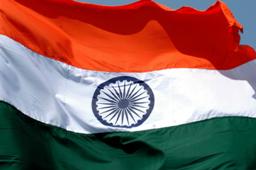 Emphasising that India has seen large number of reforms in recent years, Urban Development Minister Kamal Nath said on Thursday that even a lull in activities is taken as paralysis since expectations from investors are too high.
Emphasising that India has seen large number of reforms in recent years, Urban Development Minister Kamal Nath said on Thursday that even a lull in activities is taken as paralysis since expectations from investors are too high.
Nath, who is leading the Indian delegation at the annual World Economic Forum meeting in Davos, also said that even the US or Europe would not have seen as many reforms that happened in India.
"India has had a large number of reforms in recent years and it would be largest for any country.
No country has had as much liberalisation as India, be it the US or Europe.
"The stress in Europe did have some impact and, therefore, there was a lull which was taken as a paralysis because people think that India cannot see even a lull. This signal was wrong that needs to be corrected," Nath said.
He was speaking at a session hosted by Confederation of Indian Industry and Boston Consulting group on the sidelines of the WEF meet.
In response to a query on why not much foreign investments are coming into India's infrastructure and other sectors, Nath opined that ‘investors expect too much from India’.
"There is a psyche that has developed that either there is bloom or doom.
"There is no middle path on expectations from India and therefore just a lull has been taken as doom.
Because of this, even a small dip in growth rate in profits is perceived to be very bad as there has been very high growth in the past," Nath, also in charge of Parliamentary Affairs, said.
India expects to see about $1 trillion investments in infrastructure in the next five years to boost economic growth.
Nath, a key player in pushing foreign direct investment reforms in Parliament, noted that government needs to play a role in regulations.
"There has to be government intervention,
"Earlier people used to tell me here at Davos that India has archaic banking laws and the government is too much indulgent there.
"But again in 2009, I told those people that Indian banking has weathered the storm and has come out stronger. While the government is lending money to banks elsewhere, the banks in India is still lending to its customers," Nath said.
The slew of reform initiatives from the Indian government, in recent times, include liberalisation of FDI policy in sectors like retail and aviation sectors.
Last week, steps towards partial deregulation of diesel prices were initiated.
In reply to a query, Nath said that India and other parts of Asia are ready to witness robust consumption-led growth.
Asia makes up for about 60 per cent of population but only 20 per cent of overall global consumption.
"When we look at these figures in Indian context, we find that consumption is fuelling India's growth.
"There is a growth not only in income but also in disposable income," the Minister said.
However, he said that Asia has to first tackle developmental imbalances and stressed on the importance of inclusive growth.
"We need inclusive growth and in India we have minimum employment guarantee programme for that.
"The difference between urban and rural youth has gone and India today represents an aspirational class of society," he added.
According to him, Asia has the potential to become a very large trading bloc.
"A lot should happen in the next decade and the best time for Asia and India might be there soon," Nath said. He also added that India is open to collaborations with China in the information technology sector.
To a query on changes in leaderships, Nath said in Asia, leaders are more often getting re-elected and there is no lack of leadership in the region.








